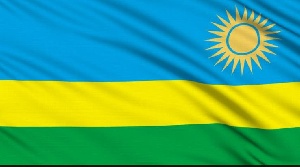Business News of Tuesday, 15 April 2025
Source: www.ghanawebbers.com
Reroy Group ready to power 24-hour economy push
The Ghanaian government has proposed a 24-hour economy policy. This initiative aims to reduce unemployment and boost productivity. It encourages businesses to operate in shifts around the clock.
The success of this policy depends on the energy and manufacturing sectors. They must be ready to meet higher operational demands, especially in power supply, logistics, and infrastructure.
Reroy Group Ltd is a fully Ghanaian-owned company established in 1992. It has evolved from a cable distributor into a leading manufacturer of energy solutions across Africa. The company operates from Tema’s Heavy Industrial Area and has over 30 years of experience.
Reroy manufactures cables, power distribution equipment, and renewable energy solutions. Its diverse portfolio includes low-, medium-, and high-voltage cables, transformers, substations, and overhead lines. These products support industrial and rural electrification.
Through its subsidiaries—Reroy Cables, Reroy Power, Reroy Metals, Reroy Energy, and Reroy Infrastructure Solutions—the Group provides innovative local solutions for critical infrastructure. As the government prepares for the 24-hour economy initiative, Reroy is positioned to meet rising energy demands.
Reroy holds an ISO 9001:2008 certification and a Ghana Standards Authority (GSA) Critical Examination Certificate. Its production systems comply with international standards like IEC, BS, and ANSI/ICEA. This compliance is essential for large-scale public infrastructure projects as Ghana adapts to extended work cycles.
The company's manufacturing facility was expanded in 2007 and is now the largest cable plant in Ghana. It enables high-volume production for national utilities and regional exports. Currently, Reroy serves markets in Nigeria, Togo, Benin, Mali, and Equatorial Guinea.
“Beyond Ghana, we have built a reputation for supplying quality cables,” said Ms. Quartey-Papafio. “This experience positions us well for broader West African integration.”
Industry observers note that Reroy's specialized products could support coastal energy projects and digital connectivity—two areas set to expand under the new economy policy.
The company produces flexible cables for machinery and armored solutions for industrial protection. These products comply with UL, IEC, and BS standards. Demand is expected to rise as facilities adopt continuous operations.
Reroy emphasizes product innovation and customer satisfaction within its strategy. While Quartey-Papafio did not share specific investment plans or upgrades details, she hinted at future initiatives aimed at enhancing Reroy’s role in national development.
“As a proudly Ghanaian company,” she said, “we see this as an opportunity to contribute meaningfully.” The company actively explores ways to expand its footprint while supporting local content policies.
Ghana seeks to reduce youth unemployment through this 24-hour economy push while diversifying its industrial base. Strong partnerships between public and private sectors will be crucial in manufacturing and infrastructure development.
For Reroy—a small importer three decades ago—this policy could mark a new growth chapter. With robust networks and large-scale production capabilities, it sees itself fitting into Ghana’s economic transformation phase.
“We’re not just ready—we’re eager to contribute,” said Ms. Quartey-Papafio. “This policy isn’t just about longer hours; it’s about creating sustainable systems.” Reliable energy infrastructure is key—and that’s where Reroy comes in.











